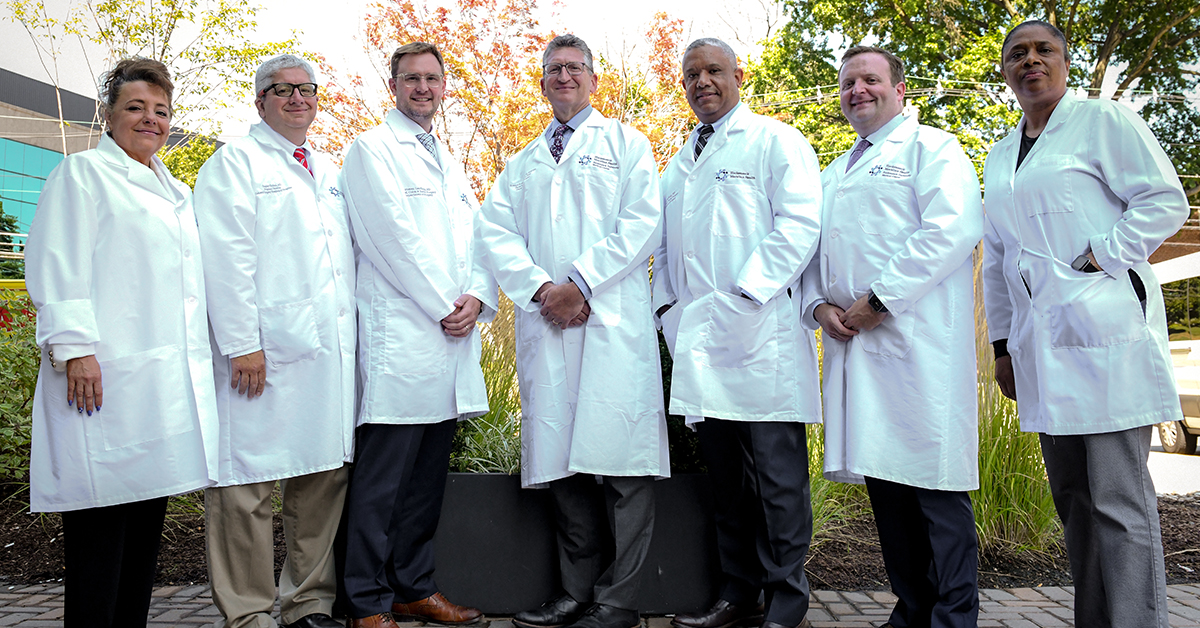With Colorectal Cancer Rates on the Rise in Younger People, Patients and Physicians Must Take Symptoms Seriously
Hackensack University Medical Center colorectal surgeon addresses trend toward increased diagnoses in individuals under 50 with no family history

During the past few decades, colorectal cancer rates have risen among people under age 50—including those with no family history of the disease.
“For many of these younger people, they aren’t in an ‘at-risk’ category and the diagnosis comes out of the blue,” said Hackensack University Medical Center colorectal surgeon Ryan Moore, M.D.
According to the American Cancer Society’s 2020 Colorectal Cancer Statistics report, overall colorectal cancer incidence and mortality continue to decline. However, in individuals younger than 50, the colorectal cancer incidence rate increased by approximately 2 percent annually.
“There’s a lot we don’t know about the reason behind the increased incidence in younger people, which could be attributable to an unrecognized genetic cause, chronic inflammation or something else,” said Dr. Moore. “But even though we don’t yet understand the cause, the medical community has to respond to what the data tells us.”
In 2021, the U.S. Preventive Services Task Force lowered its colorectal cancer screening guidelines to age 45 from age 50—with the hope of catching colorectal cancer or precancerous polyps earlier, when they are easiest to treat. However, Dr. Moore said patients should take colorectal cancer symptoms seriously, even if they aren’t old enough to qualify for screening.
Being aware of what’s normal for them individually is very important for patients to consider, said Dr. Moore. If they notice any blood with a bowel movement, changes in bowel habits, unexplained weight loss, or anything abnormal, they should get a diagnostic colonoscopy.
According to Dr. Moore, it can be easy for primary care physicians to attribute symptoms to other conditions—such as hemorrhoids, stress, or irritable bowel syndrome—in younger people. But if a patient has bleeding or other symptoms, getting a diagnostic colonoscopy, even before age 45, is the best option.
And although a colonoscopy is the gold standard diagnostic test, reluctant patients could also opt for an at-home colorectal cancer screening test.
“Colorectal cancer screening tests aren’t as good as a colonoscopy. They tend to give a lot of false positives—and if you receive a false positive, you will need a colonoscopy anyway,” said Dr. Moore. “I will always recommend colonoscopy over any other test, but at-home colorectal cancer screening tests are better than doing nothing.”
According to Dr. Moore, not only can a colonoscopy rule out colorectal cancer, but it can also establish a baseline for colorectal health and put the patient at ease.
Learn more about colorectal surgery innovation at Hackensack University Medical Center.
If you are a patient looking for expert gastroenterology care at Hackensack Meridian Health, please visit our gastroenterology & nutrition services page to learn about our specialties, find locations, and schedule appointments.
